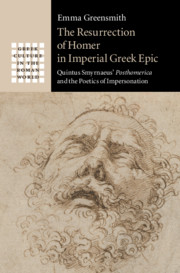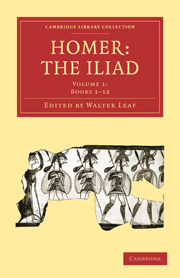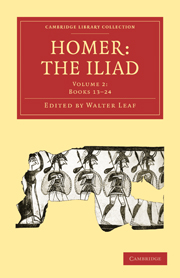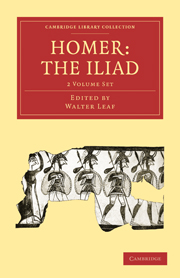The Resurrection of Homer in Imperial Greek Epic
This book offers a radically new reading of Quintus' Posthomerica, the first account to combine a literary and cultural-historical understanding of what is the most important Greek epic written at the height of the Roman Empire. In Emma Greensmith's ground-breaking analysis, Quintus emerges as a key poet in the history of epic and of Homeric reception. Writing as if he is Homer himself, and occupying the space between the Iliad and the Odyssey, Quintus constructs a new 'poetics of the interval'. At all levels, from its philology to its plotting, the Posthomerica manipulates the language of affiliation, succession and repetition not just to articulate its own position within the inherited epic tradition but also to contribute to the literary and identity politics of imperial society. This book changes how we understand the role of epic and Homer in Greco-Roman culture - and completely re-evaluates Quintus' status as a poet.
- Provides a literary and cultural-historical analysis of the Posthomerica, which has too often fallen outside of contextualized study due to a lack of precise information about its providence
- Connects Quintus' Posthomerica with a far wider range of ancient literature: not only poetry but also (and unlike previous scholarship) prose historiography, rhetoric, educational papyri; and not only Greek, but also Latin
- Moves away from the individualized study of imperial Greek authors to a joined-up understanding of this era of epic as a corpus engaging dialogically with the same issues of empire and cultural change
Product details
September 2020Adobe eBook Reader
9781108908429
0 pages
1 b/w illus.
This ISBN is for an eBook version which is distributed on our behalf by a third party.
Table of Contents
- Preface
- List of illustrations
- Acknowledgements
- Beginning again (introduction): the poetics of impersonation
- Part I. Quintus as Homer: Illusion and Imitation:
- 1. Enlarging the space: imperial doubleness, fixity, expansion
- 2. Writing homer: language, composition and style
- Part II. Quintus as Quintus: Antagonism and Assimilation:
- 3. When homer quotes callimachus: the proem (not) in the middle
- 4. Selective memory and iliadic revision
- 5. Prodigal poetics: filiation and succession
- 6. Temporality and the homeric not yet
- Bibliography.





